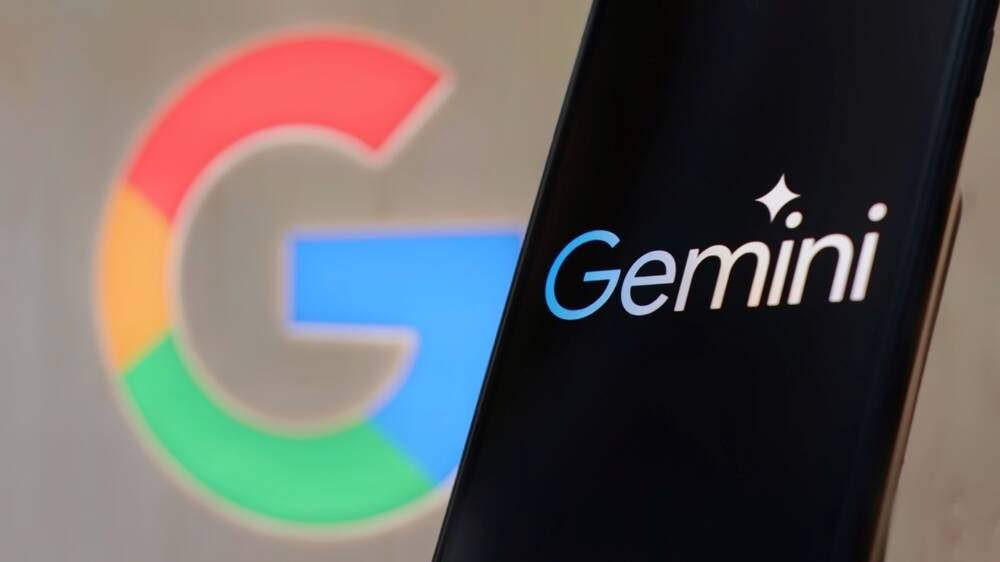Google To Reboot Gemini Image Gen In A Few Weeks After That Anti-White Race Row

Google hopes to reinstate Gemini's AI text-to-image generation of people in the next couple of weeks as it races to undo whatever prevented the model from accurately depicting White folks.
Last week, Google's latest large language model tool was criticized for generating historically inaccurate images. Users noticed Gemini would often output scenes exclusively featuring people of color when asked to recreate historical moments primarily involving White people.
The model pulled too hard in the direction of diversity, seemingly to avoid White-washing history: If you asked it to imagine a scene from the past, it would flinch from showing the presence of White people, and instead try to insert people of color wherever possible.
It would, for example, often represent women and men of various ethnicities when asked for images of popes or Vikings who were typically White. To prevent further embarrassment, Google temporarily stripped Gemini of its abilities to generate images of people while it sought to correct the issue.
At a panel discussion at this year's Mobile World Congress conference in Barcelona, Demis Hassabis, CEO of Google's DeepMind AI lab, admitted the model wasn't "working [in] the way intended."
"We have taken the feature offline while we fix that. We are hoping to have that back online very shortly in the next couple of weeks, few weeks," he added.
- Google sends Gemini AI back to engineering to adjust its White balance
- Google releases Gemma – LLMs small enough to run on your computer
- Google open sources file-identifying Magika AI for malware hunters and others
- Google silences Bard, restrings it as Gemini with optional $20-a-month upgrade
AI models often perpetuate biases and stereotypes, and trying to straighten all that out is tough; as seen with Gemini, it's possible to overcompensate and erase whole groups of people from history. Google's SVP Prabhakar Raghavan admitted the mega-corp failed to adjust Gemini's outputs effectively.
"First, our tuning to ensure that Gemini showed a range of people failed to account for cases that should clearly not show a range," he said. "And second, over time, the model became way more cautious than we intended and refused to answer certain prompts entirely — wrongly interpreting some very anodyne prompts as sensitive.
"These two things led the model to overcompensate in some cases, and be over-conservative in others, leading to images that were embarrassing and wrong."
It's not clear how Google fine-tuned its model, and whether it explicitly asked Gemini to generate more diverse images of people. A spokesperson from the web goliath declined to comment on the matter further.
In our experience, the model has lost all ability to emit software-generated pictures for the moment. Gemini's text-generating abilities, however, remain intact. On Monday, Google announced new Android features incorporating its latest language model to mobile phones and car systems. Users will soon be able to chat to Gemini directly in Google Messages to produce text to learn more information or to draft emails or texts.
Meanwhile, Android Auto will automatically summarize long texts or conversations in group chats, and come up with relevant replies and actions automatically to help drivers respond quickly from behind the wheel. ®
From Chip War To Cloud War: The Next Frontier In Global Tech Competition
The global chip war, characterized by intense competition among nations and corporations for supremacy in semiconductor ... Read more
The High Stakes Of Tech Regulation: Security Risks And Market Dynamics
The influence of tech giants in the global economy continues to grow, raising crucial questions about how to balance sec... Read more
The Tyranny Of Instagram Interiors: Why It's Time To Break Free From Algorithm-Driven Aesthetics
Instagram has become a dominant force in shaping interior design trends, offering a seemingly endless stream of inspirat... Read more
The Data Crunch In AI: Strategies For Sustainability
Exploring solutions to the imminent exhaustion of internet data for AI training.As the artificial intelligence (AI) indu... Read more
Google Abandons Four-Year Effort To Remove Cookies From Chrome Browser
After four years of dedicated effort, Google has decided to abandon its plan to remove third-party cookies from its Chro... Read more
LinkedIn Embraces AI And Gamification To Drive User Engagement And Revenue
In an effort to tackle slowing revenue growth and enhance user engagement, LinkedIn is turning to artificial intelligenc... Read more

